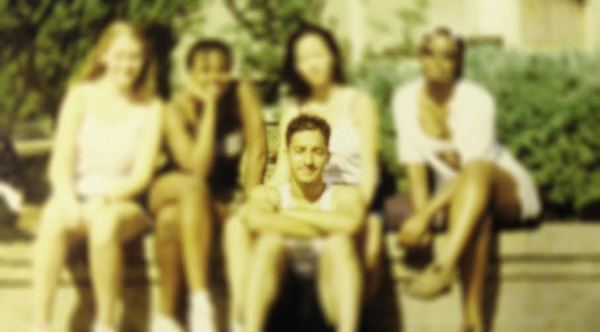 BY MOLLY KASSEL This week on Serial, Sarah Koenig discusses two ideas; possible anti-Muslim discrimination in Adnan’s prosecution and conviction, and Cristina Gutierrez, Adnan’s defense attorney. Shamim, Adnan’s mom is clear; she believes Adnan’s guilty verdict is due to racism and discrimination on behalf of the state, prosecutors, and jury.
BY MOLLY KASSEL This week on Serial, Sarah Koenig discusses two ideas; possible anti-Muslim discrimination in Adnan’s prosecution and conviction, and Cristina Gutierrez, Adnan’s defense attorney. Shamim, Adnan’s mom is clear; she believes Adnan’s guilty verdict is due to racism and discrimination on behalf of the state, prosecutors, and jury.
When Adnan was arrested, the prosecutor argued against his bail while repeatedly referring to him as ‘Pakistani.’ The prosecutor said that his friends and family and surrounding community — which was helping him make bail and pay for a lawyer — would assist in his ‘getaway’ to Pakistan, where he had an uncle. Koenig points out that Adnan is not Pakistani, he is an American citizen. The prosecutor later issued an apology saying her facts and evidence were misconstrued.
Language and diction are important aspects of the case against Adnan. Another prosecutor repeatedly used the words “besmirched” and “honor” in court, to associate Adnan with honor  killings, which is how they characterized Hae’s murder. Members of the jury said that Adnan’s religion had no impact on their guilty verdict. However, the two jurors Koenig interviewed said that Adnan’s “culture” did, in fact, color their perception of the case. They said in his culture “women are second class citizens,” and “Arabic men rule.” If Adnan is innocent, this stereotyping of Muslim men is racist and insensitive. However, if Adnan is guilty, stereotype becomes motive. From my perspective, the state’s case was not overtly racist, but the language and insinuations of the state’s case may have intentionally appealed to the jury’s racist and xenophobic tendencies.
killings, which is how they characterized Hae’s murder. Members of the jury said that Adnan’s religion had no impact on their guilty verdict. However, the two jurors Koenig interviewed said that Adnan’s “culture” did, in fact, color their perception of the case. They said in his culture “women are second class citizens,” and “Arabic men rule.” If Adnan is innocent, this stereotyping of Muslim men is racist and insensitive. However, if Adnan is guilty, stereotype becomes motive. From my perspective, the state’s case was not overtly racist, but the language and insinuations of the state’s case may have intentionally appealed to the jury’s racist and xenophobic tendencies.
The second topic tackled in episode 10 is Adnan’s elusive defense attorney, Cristina Gutierrez, who died in the early 2004. With what we’ve learned previously about Gutierrez, most reasonable people would conclude that she didn’t do a good job. Gutierrez’s biggest mistake was her decision not to put Asia — who said she saw Adnan in the library during the time of Hae’s murder — on the stand. Rabia, a family friend of Adnan’s, believes Gutierrez botched it on purpose for some kind of monetary pay off.
Shamim, Adnan’s mom, said that Gutierrez’s financial dealings with Adnan’s family often lacked logic and transparency. She would charge them for ‘experts’ she claimed she was hiring  but wound up never using. One time, Gutierrez requested Shamim bring her $10,000 in cash. Koenig interviewed another couple who hired Gutierrez around the same time. They had similar experiences and complained of Gutierrez’s unpreparedness and lateness. When asked, law clerks and associates of Gutierrez attributed this slipping to the onset of her illness. Gutierrez’s courtroom strategy felt counterintuitive and her counsel was ineffective. As one juror put it, it was as though she was “talking, but not saying anything…she didn’t prove anything.” Her cross-examination of Jay tedious and long-winded, and any exculpatory testimony was lost on the jury because of the sheer volume of her questioning.
but wound up never using. One time, Gutierrez requested Shamim bring her $10,000 in cash. Koenig interviewed another couple who hired Gutierrez around the same time. They had similar experiences and complained of Gutierrez’s unpreparedness and lateness. When asked, law clerks and associates of Gutierrez attributed this slipping to the onset of her illness. Gutierrez’s courtroom strategy felt counterintuitive and her counsel was ineffective. As one juror put it, it was as though she was “talking, but not saying anything…she didn’t prove anything.” Her cross-examination of Jay tedious and long-winded, and any exculpatory testimony was lost on the jury because of the sheer volume of her questioning.
However, during the second trial, Gutierrez did uncover a crucial piece of information. Mid-questioning, Jay told Gutierrez that the prosecutor, Kevin Ulrich, set him up with a pro-bono lawyer. Heretofore, this information was not known to Gutierrez or to the court, and is extremely unconventional and fishy. Something like this is known as a benefit, Koenig explains. This is important because if Jay felt indebted to the state or the prosecutor, he may have said certain things to please them. However, Jay claimed he was unaware of this benefit, and the judge ruled that because of that his testimony “was not tainted,” therefore that piece of information did not change the outcome of the trial.
This week’s installment concluded with talk of Adnan’s appeal. There have been various media stories this week that Adnan’s case is being reheard or reconsidered in court. Koenig tells us that is mostly untrue. One technicality of the trial will undergo judicial review in January, but no matter the outcome, he will not be freed or deemed innocent. Likewise, it is unlikely he will ever be granted parole. As Koenig states, “parole is for those who show remorse,” and Adnan continues to insist on his innocence.

